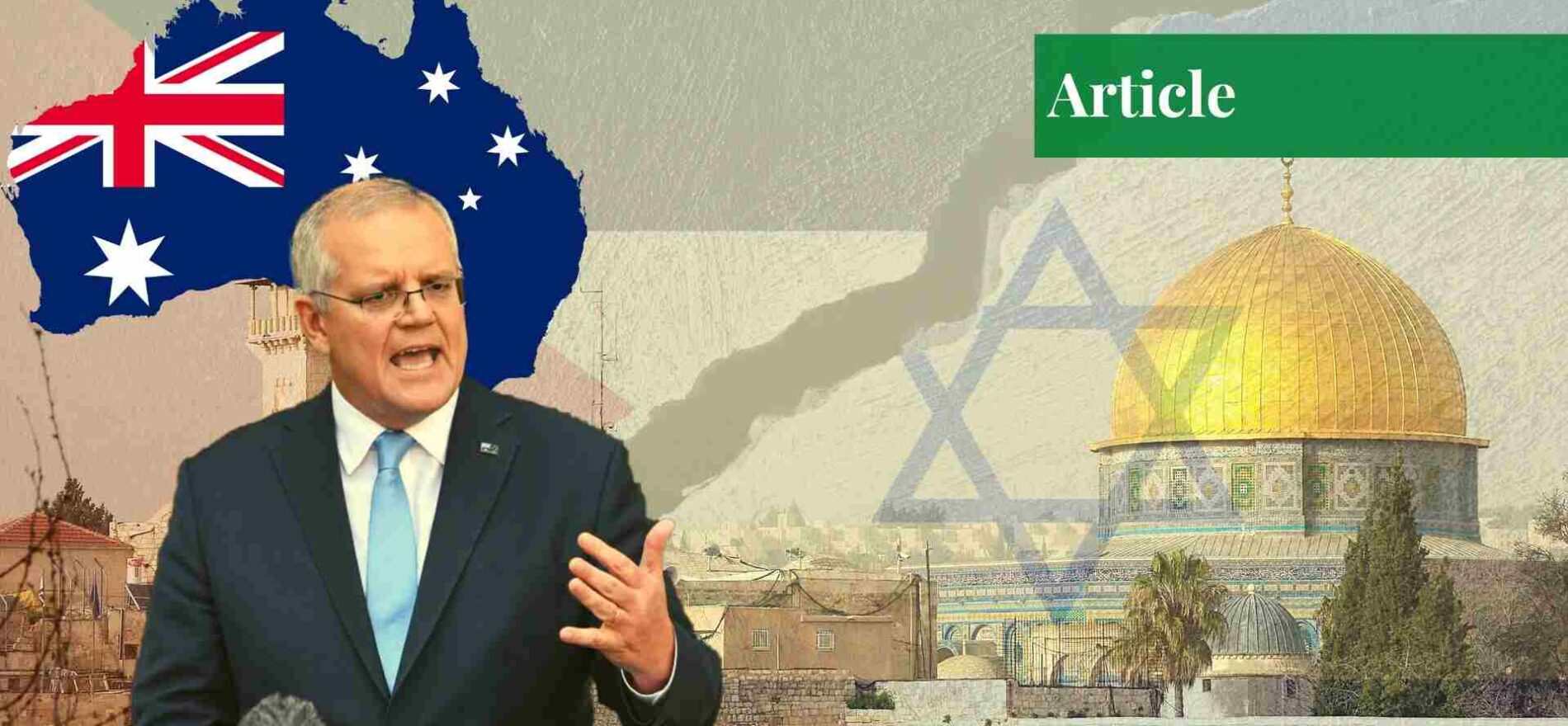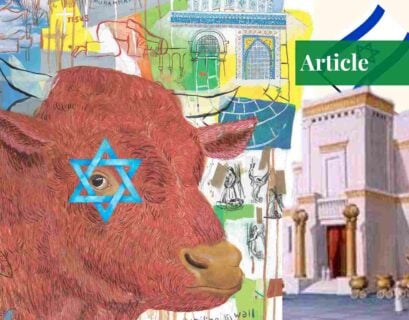Hamra Tariq is an undergraduate student currently pursuing her international relations degree at Kinnaird College for Women, Lahore. She has a keen interest in South Asian politics, the Indo-Pacific, and the shift in the global order.
Rescinding the 2018 Decision
Jerusalem, a holy city to Muslims and Jews, is claimed by both Israelis and Palestinians as their capital. Jewish neighborhoods are located in the west of the city, whereas Arab sections have a hold over the east. Israel annexed East Jerusalem in 1980 after occupying it during the 1967 Six-Day War, but many do not accept this. In the decades-long conflict between the two parties, the “final status” of Jerusalem has been one of the most critical flashpoints.
The reversal of recognition by Australia of West Jerusalem as Israel’s capital on October 18th was met with great fury amongst Israel’s officials. The turn-around was followed by the removal of references to West Jerusalem as Israel’s capital from the Department of Foreign Affairs and Trade website.
Former US President Donald Trump recognized Jerusalem as Israel’s capital in December 2017, but he did not define the city’s boundaries, especially the eastern sector—home to key Christian, Jewish, and Muslim holy sites—which the Palestinians desire as their future capital. Later, in 2018, Scott Morrison, the former conservative prime minister of Australia, made its decision to recognize West Jerusalem as Israel’s capital.
The foreign minister of Australia, Penny Wong, described it as a ‘cynical’ effort of former Prime Minister Scott Morrison to win a special parliamentary election in Sydney with a sizable Jewish community. She also made a comment that the 2018 decision made Australia go out of step as compared to the rest of the international community and that it created friction with its neighboring Indonesia, the most populous Muslim state.
Foreign Minister Wong stated that the solution to Jerusalem’s status should be decided through mutual negotiations between Israel and Palestine. She further remarked that Australia “will always be a steadfast friend of Israel,” but Canberra would not support any approach that undermines the possibility of a two-state solution that envisions a future of Palestine and Israel coexisting peacefully.
Israel’s Furious Reaction
In a written statement made public by his office, Israeli Prime Minister Yair Lapid reaffirmed his country’s unwavering commitment to Jerusalem as its “eternal undivided capital.” He went on to criticize the decision by stating that Prime Minister Anthony Albanese’s government had been misled by media reports, expecting that they handle other matters more “seriously and professionally.”
Welcomed by Palestine
Palestinian Foreign Minister Riyad al-Maliki viewed this step by Australia as a correction to its previous move. He told Reuters that Australia should now “proceed to the most crucial step, and that is recognising the state of Palestine in light of its commitment to the two-state solution.”
The decision was also appreciated by other Palestinian leaders as well. “We really appreciate this initiative and the position of the Australian government, and we consider it a step in the right direction,” said Rawhi Fattouh, a senior official of the Palestine Liberation Organization.
Sentiment Within Australia
The decision to rescind recognition of West Jerusalem as the capital of Israel in Australia has met with a flurry of vehement editorials in the major media sources as well as a number of fierce remarks by various Jewish, pro-Israel groups. The Executive Council of Australian Jewry (ECAJ) referred to the decision as a “gratuitous insult to a major economic and geopolitical ally.”
The voices of Australian Palestinians, however, have been glaringly lacking from the media’s coverage of the dispute. Many of the approximately 7,000 members of the small community living in Australia have been permanently displaced; they are refugees whose right to return to their homeland has been repeatedly denied by Israel.
The Challis Chair of International Law at Sydney University, Professor Ben Saul, expressed his displeasure with the “erasure” of Australian Palestinian voices in the discussion. The leader of Australian Greens, Adam Bandt, tweeted that he “welcomed” the shift and expressed his hope that the Labor Party would soon recognize “the state of Palestine.”
The vice president of the Australia Palestine Advocacy Network (APAN), Nasser Mashni, praised the government for “differentiating itself from the dangerous political posturing of the previous administration.” Mashsni added, “Israel asserts that the entire city is exclusively theirs, denying Palestinian connection to their ancient spiritual, cultural and economic capital.”
Conclusion
The so-called historic peace deals with Israel negotiated by former US President Donald Trump intended to cement western capitalism’s undisputed dominance and serve as a finality of all sorts. Trump’s agreement effectively declared that “you,” the isolated and marginalized Palestinians, had lost and “we,” the US, Israel, and a few allies, had won.
However, the refusal of the international world to officially recognize Jerusalem as Israel’s capital and, consequently, relocate their embassies there has shown that this is not the case. Neither Washington nor Tel Aviv has enough strong political cards to reframe the politics of the Middle East on its own in this century.
Eastern Jerusalem is considered an occupied territory according to the United Nations till today. Hence, other nations have stayed neutral by establishing their embassies in coastal Tel Aviv. Since only a few countries have recognized Jerusalem as Israel’s capital, including Biden continuing Trump’s decision, Israel’s foreign policy has focused on getting governments to relocate their embassies there.
While the reversal has infuriated Israel, it will do little tangible, if any, harm to the relations between Australia and Israel.
If you want to submit your articles and/or research papers, please check the Submissions page.
The views and opinions expressed in this article/paper are the author’s own and do not necessarily reflect the editorial position of Paradigm Shift.



















